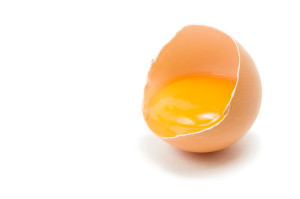 Are you getting the most out of your freezer? You’d be surprised at all the things you can keep in there – much more than leftover pasta sauce and baby purees. Here’s a rundown of foods you probably never considered freezing (but we bet you will now!)
Are you getting the most out of your freezer? You’d be surprised at all the things you can keep in there – much more than leftover pasta sauce and baby purees. Here’s a rundown of foods you probably never considered freezing (but we bet you will now!)
1. Nuts. Thanks to their high oil content, nuts stored at room temperature can turn rancid quite quickly. But they will last longer in the freezer. Transfer to a resealable plastic pouches and label with the date, then use within 6-12 months. Unless you’re planning on munching them as a snack, you can add frozen nuts to your cooking. Consider also using a double bag to prevent nuts absorbing the smells of other foods in your freezer.
2. Fresh herbs. It’s never a nice feeling to throw away half a bunch of wilted herbs because you only needed half a cup for that recipe last week, and you haven’t found a way to use the leftovers. Instead, chop and transfer herbs to an ice cube tray and top up with water. Freeze to use in cooking and salads as you need it.
3. Flour. Keeping flour in the freezer discourages those little weevils from hatching, so it’ll last much longer. Double-bag it to prevent it absorbing smells from other foods, then remove what you need as you need it, allowing time to bring to room temperature before using it. You can also use this technique for other baking goods and grains, such as sugar, rice and dried beans.
4. Eggs. There’s a little science behind the art of freezing eggs. To freeze whole eggs, crack and lightly beat then transfer to a resealable plastic bag. For egg whites, pour directly into resealable plastic bags or an ice cube tray. For yolks, first beat with a little salt (to use in savoury dishes) or sugar (to use in sweet dishes), then freeze. Label all frozen eggs with the date and use within 12 months by thawing in the fridge overnight. Frozen eggs are best used in thoroughly cooked dishes – use fresh eggs for things like meringue, custard or hollandaise sauce.
5. Wine. Assuming there’s any leftover come Monday, wine is a brilliant thing to freeze in cube-size portions. How often does a recipe call for a tablespoon or two of wine to boost the flavour of a sauce, gravy or dessert? If you’re not a wine drinker, buying a bottle for just a small amount can seem wasteful. If you always have wine on-hand, you can purchase a less expensive bottle for cooking and freeze it until you need it. And here’s a tip to help you keep track of how many cubes to defrost at a time: 1 tablespoon of wine equals 20ml; ¼ cup equals 60ml; and ? cup equals 80ml.
